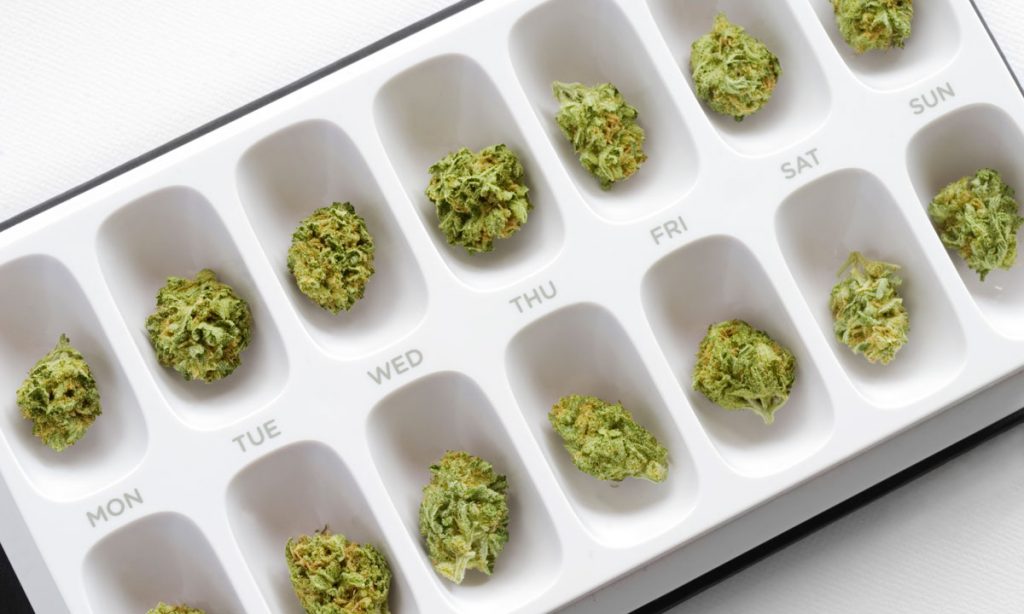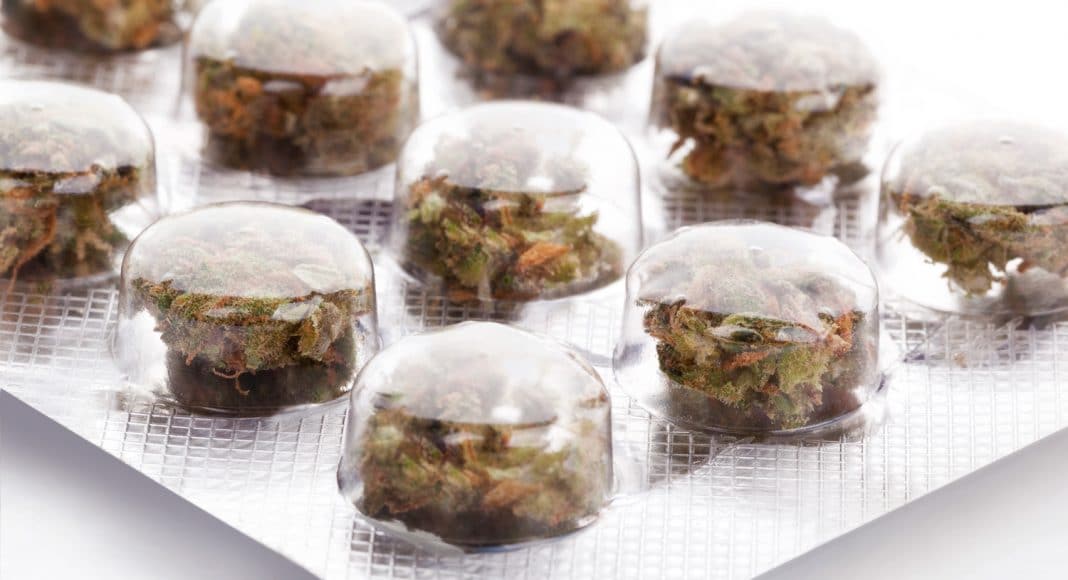The perfect dose is no one-trick pony. A combination of technologies, all working together, is what may finally crack the dosing code.
It’s no secret that the “perfect dose” has long been among the most sought-after requests of cannabis connoisseurs and medical advocates. While legalization blooms, dose control becomes an even more important hurdle to overcome as new markets open and new customers cast a curious eye on the plant. But historically, it has been difficult if not impossible to ensure a consistent dosing experience with cannabis. But that may all be changing.
Most vaporization products currently on the market approach dosing purely through an inhalation lens, either by forcing a timed inhalation or by measuring a dose by volume of air inhaled. Still, many experts question whether either of these approaches provides a consistently accurate and repeatable dosing experience.
The concept of a timed inhale falls short for one very obvious reason: Every individual inhales at a different rate. One person may inhale in a very strong, consistent way throughout the inhalation, while a different person may inhale at a very slow or weak rate. Despite both people inhaling for the same several seconds, it’s impossible to guarantee they’ll ingest the same dose. While vaporizers utilizing a timed inhale (for example, Pax, Dosist) may provide a vague barometer for consumers to use as a personal dosing guideline, a timed inhale simply does not provide accurate dose control from person to person.
RELATED: Marijuana 101: The Conundrum Of Cannabis Dosing
On the other hand, the technology of devices (such as Ryah, Indose) using volume of air inhaled as the metric to define a “dose” has its own drawbacks. While seemingly providing a more accurate measurement than a simple timed inhale, this approach also creates huge variances that cannot be overcome. Once again, the strength of the inhale varies from person to person, creating a different “pull” during any individual inhale. In addition, the temperature used during the inhale can vary from dose to dose, and even the amount of oil remaining in the device or cartridge can impact the vapor concentration that’s created. With these variables in play, there is virtually no way to ensure a consistent concentration of vapor across the entire inhalation process from dose to dose.

In a white paper published in Frontiers in Pharmacology, board-certified neurologist and psychopharmacology researcher Dr. Ethan Russo suggests that “a cannabis delivery system with reliable intermediate onset, allows dose titration without pulmonary dangers, relieves symptoms, and is biochemically uniform and defined would engender confidence of all parties.”
RELATED: Why Patients Should Always Start With Microdosing Medical Marijuana
In other words, the perfect dose is no one-trick pony. A combination of technologies, all working together, is what may finally crack the dosing code. Companies like Strainprint, Ryah and Indose are creating multi-faceted hardware solutions in an attempt to control dose — and Gofire is taking a “kitchen sink” approach by integrating a host of technologies together to identify, measure and track dosing. Of these companies, Gofire seems best poised to capture the dosing prize, and its technology has already been successfully tested as accurate measurement tools for clinical cannabis trials at Colorado State University. The company’s approach uses a precise measure of the liquid medicine extrusion in customizable 2.5 mg increment doses, then tracks the medicine’s exact chemical profile and outcomes via a phone app.
For some, the concept of dose control boils down to the need to manage cannabis intake to avoid overconsumption or discomfort. But for many others, the best way to an accurate dose will be the method that enables medical professionals to confidently recommend cannabis for certain conditions. As the industry grows and products proliferate, the approach to dose control that leads to real, reliable outcomes will win.


